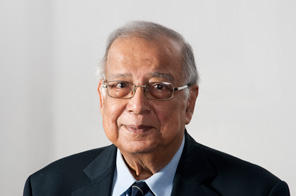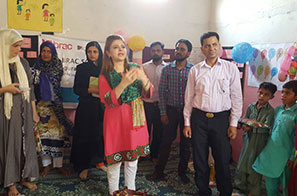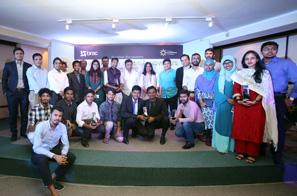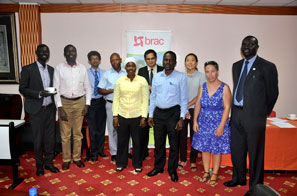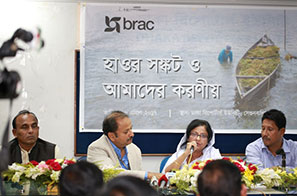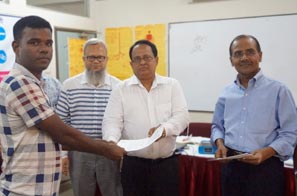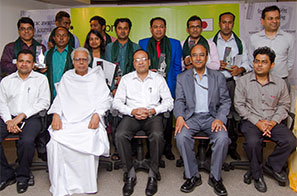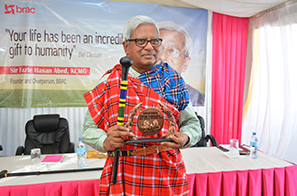
English (965)
Children categories
BRAC observes the fourth UN Global Road Safety Week
On 13 May, bus drivers and transport association leaders at the Mohakhali bus terminal took pledges to keep the speed of their vehicles below 30 kilometre per hour while passing schools, hospitals, residential areas and on roads with mixed traffic of non-motorised vehicles and pedestrians. A total of 5000 bus drivers, transport association leaders, operators and administrators are expected to take part in this week-long activity.
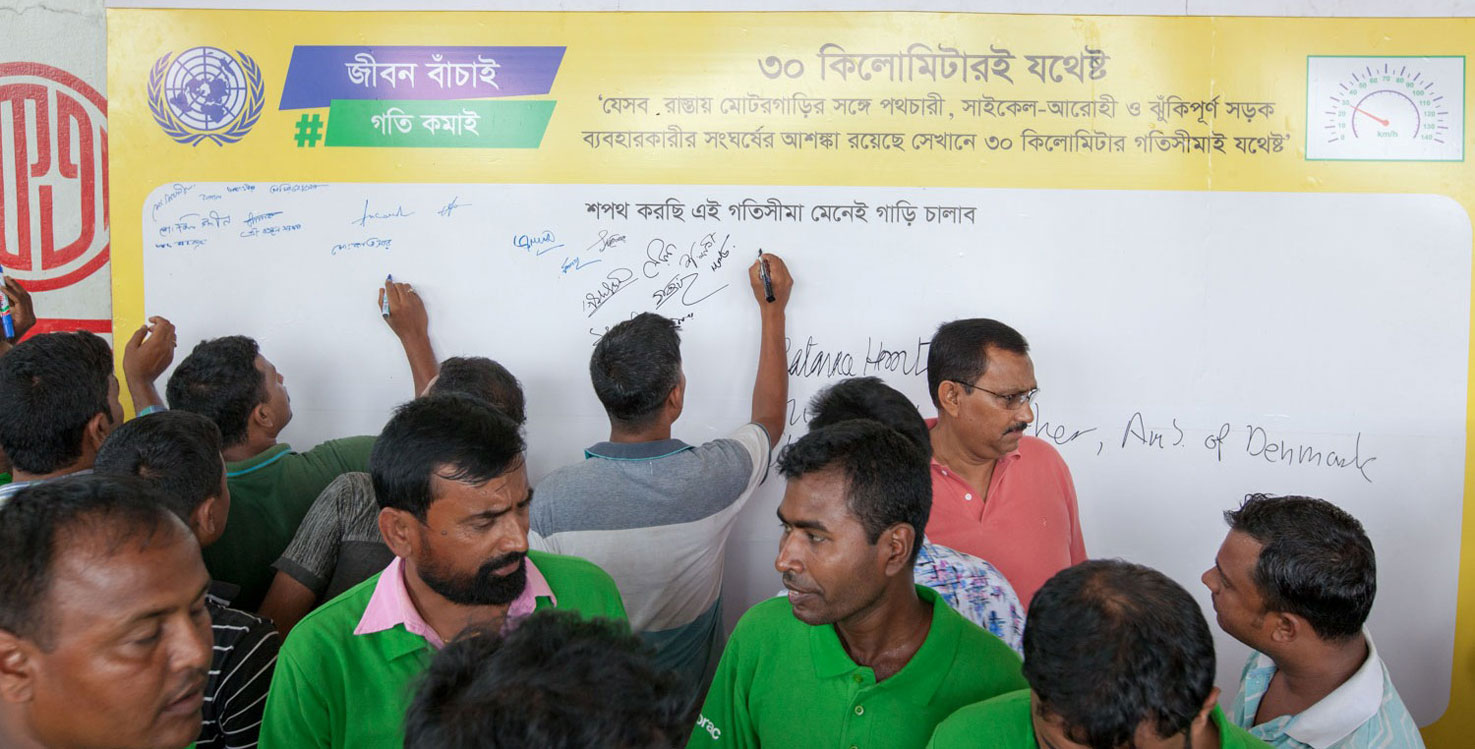
Scene from the Mohakhali bus terminal on the first day of the pledge-taking ceremony
This is part of a campaign that was organised by BRAC on the eve of United Nation Global Road Safety Week 2017 which was observed during May 8 - 14 across the world. This year's UN road safety campaign theme was "Save Lives - #SlowDown".
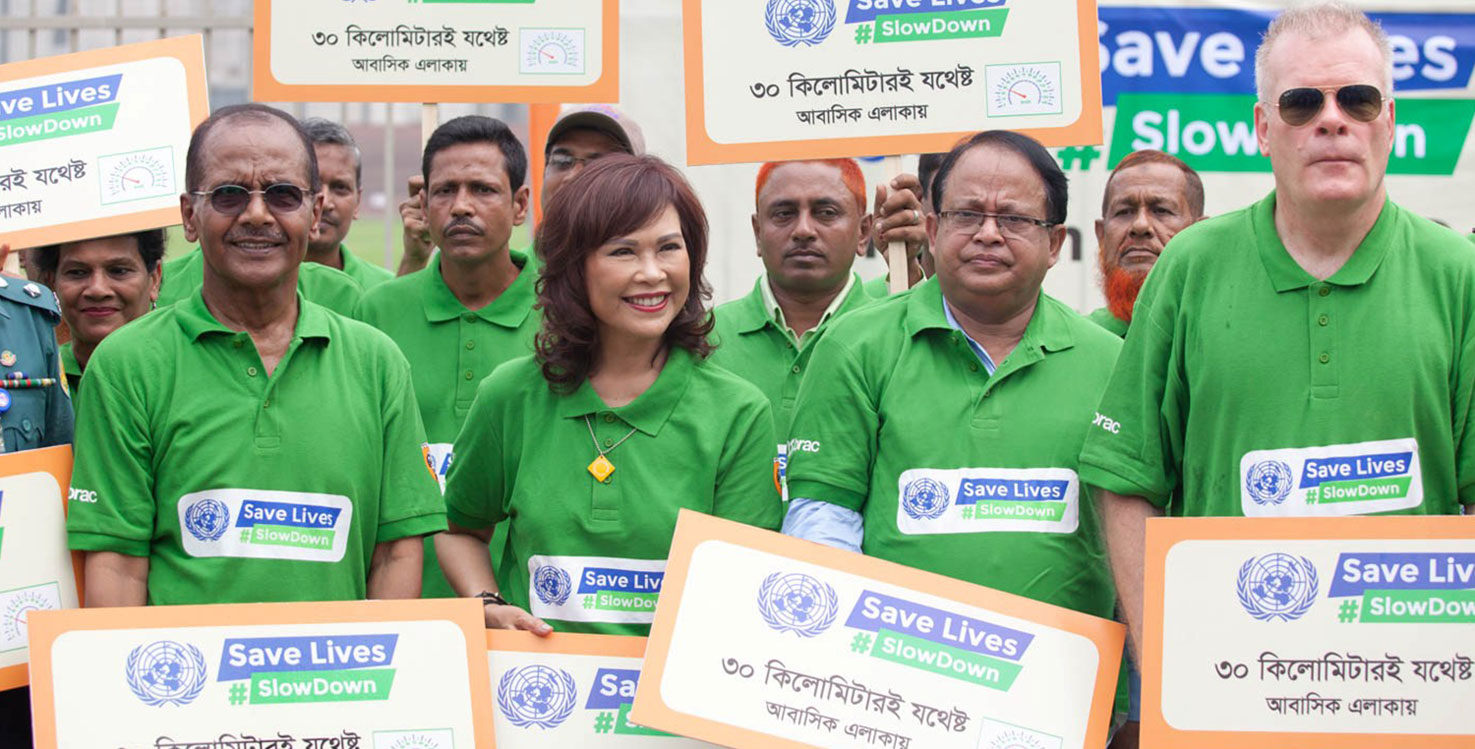
From left: Ahmed Najmul Hussain (director of BRAC's road safety programme), Ratanawadee Winther (Asian Injury Thailand's chairperson), Md Moshiar Rahman (chairman of BRTA) and Danish Ambassador to Bangladesh Mikael Hemniti Winther
Bangladesh Road Transport Authority (BRTA) chairman Md Moshiar Rahman inaugurated the event, followed by a discussion on the significance of the week at the south plaza of National Parliament. Danish Ambassador to Bangladesh Mikael Hemniti Winther, Asian Injury Thailand chairperson Ratanawadee Winther, BRAC Road Safety programme's director Ahmed Najmul Hussain and its advocacy programme's director KAM Morshed, among others were also present.
This was followed by a motor cycle rally involving 200 bikers who carried colourful flags, placards and banners that boldly displayed UN's campaign slogan. During the rally, they engaged with drivers of buses, cars and three-wheelers to spread the message of slowing down speeds to prevent loss of lives.
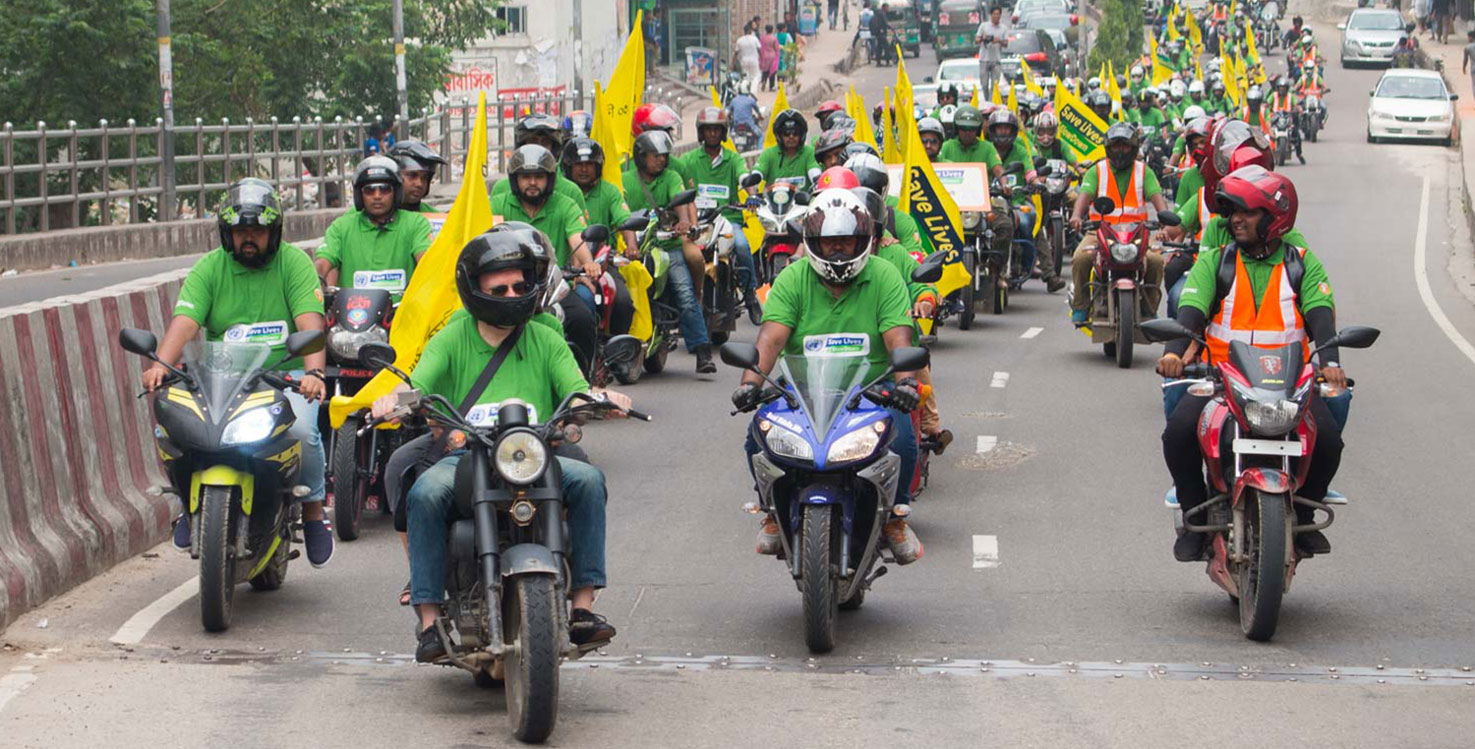
200 members of the Road Riderz motorbike group helped stage the rally
BRTA's chairman said the high speed is the key reason behind deadly accidents. Safe speed of vehicles could help save hundreds of lives every year.
Winther said the campaign will draw the attention of the policy makers about the burning issues related to road safety and will develop simple, low-cost interventions to address these. He urged the drivers for going slow, saving lives of both others and themselves.
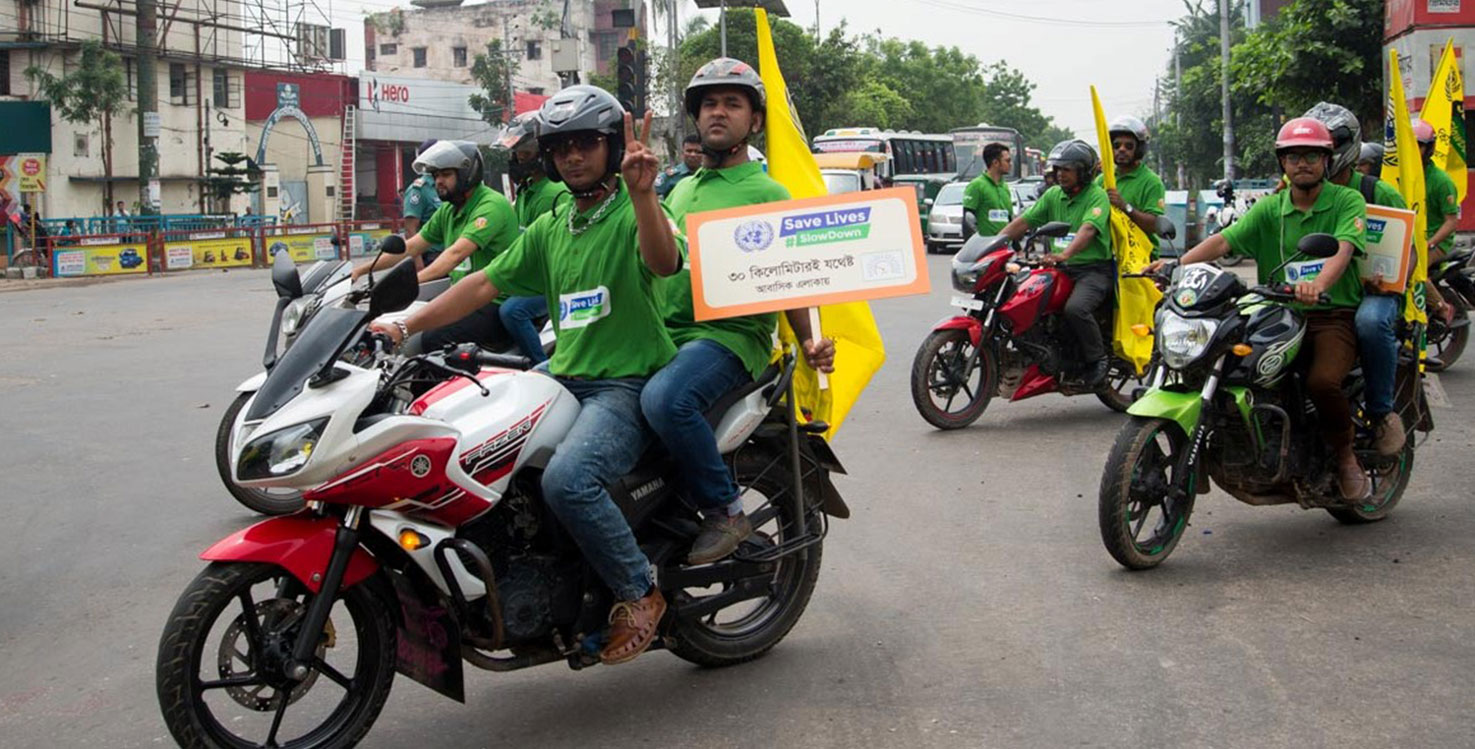
The 35 kilometre rally started from the National Parliament building and ended at Bashundhara residential area
Najmul Hussain stated that BRAC for years has been raising community awareness about road safety, training drivers and driving instructors, and doing research to improve road safety in Bangladesh.
We mourn for Faruq Ahmed Choudhury
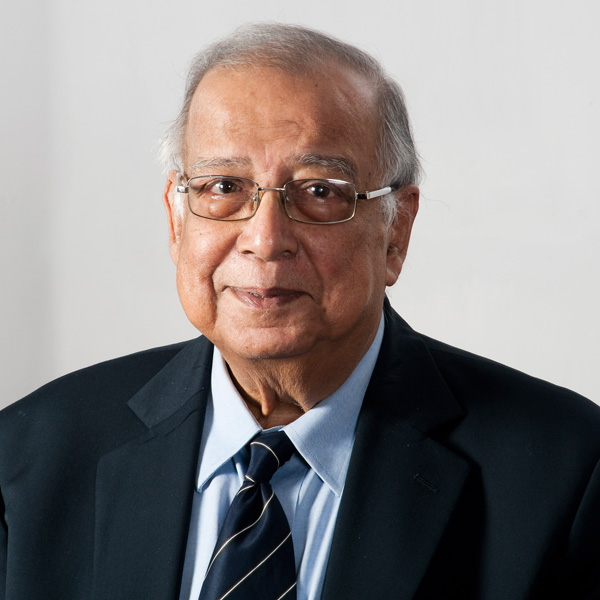
(1934-2017)
BRAC deeply mourns at the demise of Mr Faruq Ahmed Choudhury, former adviser and governing body member of BRAC. He passed away on May 17, 2017 at 4.30 am, in Square Hospital, Dhaka at the age of 83. He left behind his wife, a son and a daughter.
Mr Faruq Ahmed Choudhury, was born in January 4, 1934 in Assam, India. Throughout his successful career, he served the Bangladesh Government for two decades and occupied the roles of foreign secretary and ambassador.
He joined BRAC as an advisor in 1992 and continued to work with BRAC until 2006. His contribution played a key role in BRAC’s expansion and growth. He was also a governing body member of BRAC, a trustee board member of BRAC University and the chairman of Delta-BRAC housing company.
As an eminent columnist, he received popularity for his publications on socio-economic and political issues. He received IFIC Bank Literature Award in 2014 and Bangla Academy Literature Award in 2016.
Sindh Government official inaugurated BRAC school
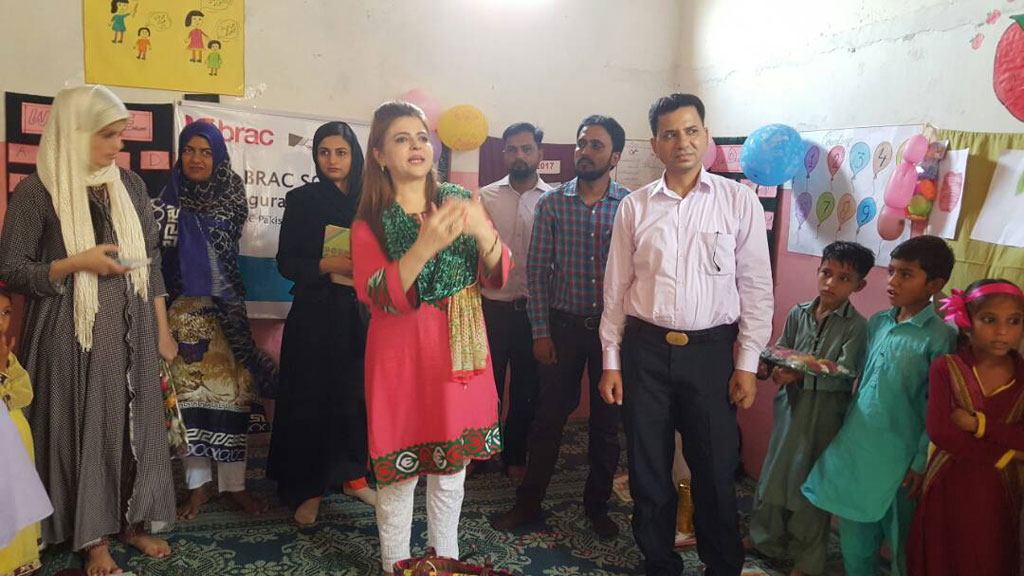 Dr. Fauzia Khan addressing learners in BRAC Primary school
Dr. Fauzia Khan addressing learners in BRAC Primary school
The additional secretary Government of Sindh and the head of curriculum wing of Sindh, Dr. Fauzia Khan, inaugurated a BRAC Primary school in Baldia Town, Karachi.
BRAC in Pakistan, with financial support from DFID, has established 300 non-formal schools for out-of-school, marginalised children in April 2017. 9,000 learners have been enrolled in Karachi, Khairpur and Kambar Shahdadkot districts of Sindh province.
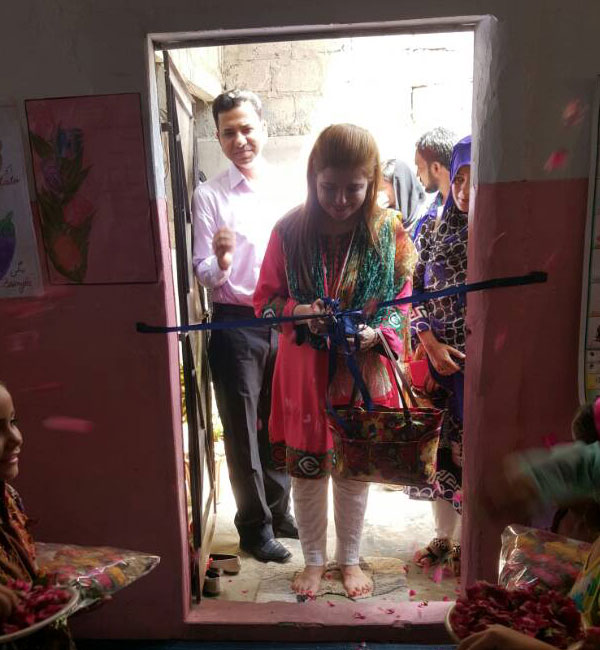 Dr. Fauzia Khan inaugurating the new school
Dr. Fauzia Khan inaugurating the new school
During the opening ceremony of the school, Dr. Khan appreciated BRAC's efforts to provide education to out-of-school children, especially girls. She addressed the community and parents, and she encouraged learners to put their heart and mind in their studies. She also welcomed new admissions to the school and met with the school management committee members. “This project will significantly improve the net enrolment rate of Sindh province," she exclaimed, and pledged to extended the full support of the Government of Sindh for the capacity building of BRAC’s teachers.
BRAC in Pakistan has started 1,500 primary schools and enrolled 46,566 out-of-school children in the rural and urban slum areas of Sindh. 5,493 learners were successfully graduated and mainstreamed into middle schools with the help of the Education and Literacy department of the Government of Sindh.
Urban innovation challenge announces 5 winners
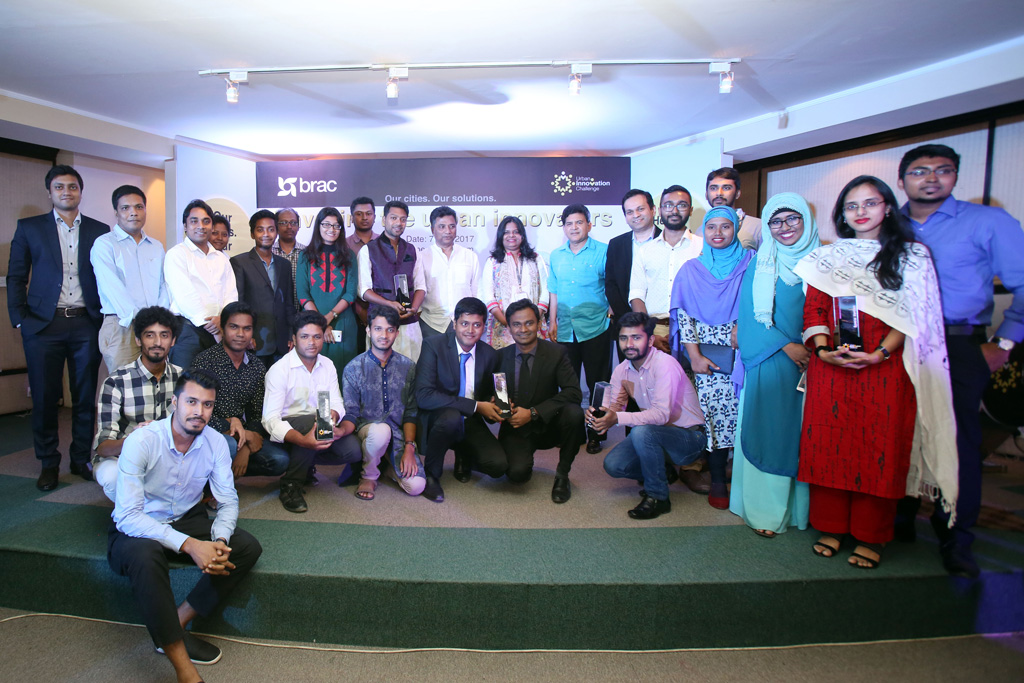
BRAC announced five winners for bringing innovative solutions to the growing challenges faced by the people living in cities across Bangladesh. The mayor of Dhaka North City Corporation (DNCC), Annisul Huq, announced the winners at an event organised at BRAC Centre today (7 May 2017).
Praising the initiative he said, “It’s wonderful to see the youth coming up with so many innovative ideas for the country. I really appreciate BRAC’s effort in creating a space and scope to incubate these innovations.” He also added, “The city corporation is always ready to support the new innovators to bring their ideas into effective solutions. We are hopeful for the results. Thanks to all the participants who joined the competition.”
Launched in October 2016, the competition created a platform for innovators, young entrepreneurs and university students to offer their solutions to the growing problems in urban areas. The three specific problem areas were: health, transportation and informal sector employment. The goal is to find the best ideas in Bangladesh and support innovators to build them into sustainable social enterprise models.
Around 600 applicants registered for the competition. 33 were short-listed for submitting full proposals. 13 teams were selected for the final round.
A jury of 5 experts including development practitioners and investors assessed the proposals on sustainability, relevance and human centricity of the design. Five teams are finally selected as winners. The winning teams are: Bhumijo and Bloodman in health category, Driver Mela and Servicing Campus in employment category and Amar Bike in transport category.
Winners will build their prototypes and test them in the field with BRAC in the next six months. They will receive mentoring, skills development and support, as well as a grant amount up to BDT 5 lac and linkage to potential investors.
The runners up of the competition are HealthSoc and The Neem Squad in health category, BlueSynaps, Team B and Unigigg in employment category and Barisal-1 and SmartTraffic in transport category. Identity Inclusion got special mention in health category.
Present as special guest, Executive Chairman of PPRC Dr Hossain Zillur Rahman said, “Innovation always works when there is an ecosystem. Innovative mind-set is another essential component of this system. I am happy that the competition was not Dhaka based, rather it was Bangladesh based, which proves that innovative mind-set is everywhere. We just need to give them a platform. The Urban Innovation Challenge not only ensured that platform but it also helped to produce responsible citizenship.”
In the concluding remarks, BRAC’s senior director Mr Asif Saleh said, “With our experience from the last 45 years, we can guide the young innovators to bring their ideas into a sustainable solutions. In order to do so, all of us the innovators, the mentors and the investors have to work together.”
Shout-Daily Star partnered the Urban Innovation challenge for youth engagement, Radio Shadhin for radio engagement, Beatnik for digital engagement and IDEO.ORG for knowledge management.
This competition was a part of BRAC’s newly launched urban development programme which focuses on improved service delivery, mobilisation and governance.
Sphere Standards Review
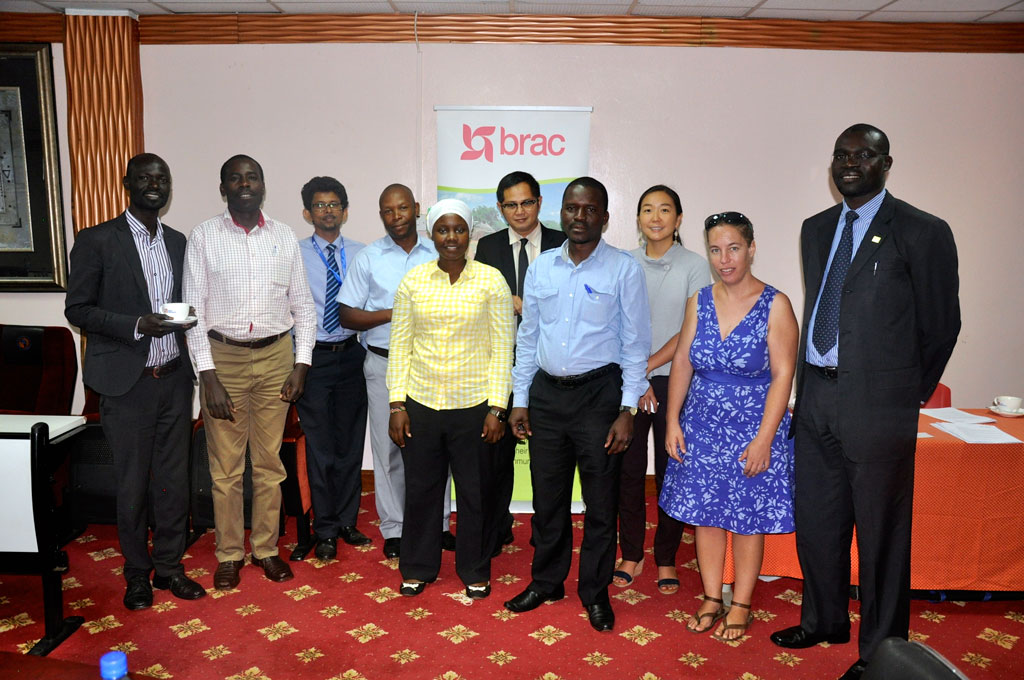 Participants at the Sphere Standards Review consultation convened by BRAC in Uganda
Participants at the Sphere Standards Review consultation convened by BRAC in Uganda
BRAC Uganda’s Emergency Response Programme organised a consultation workshop to review the Sphere Standards in Uganda on 12 April 2017, at Africana Hotel in Kampala.
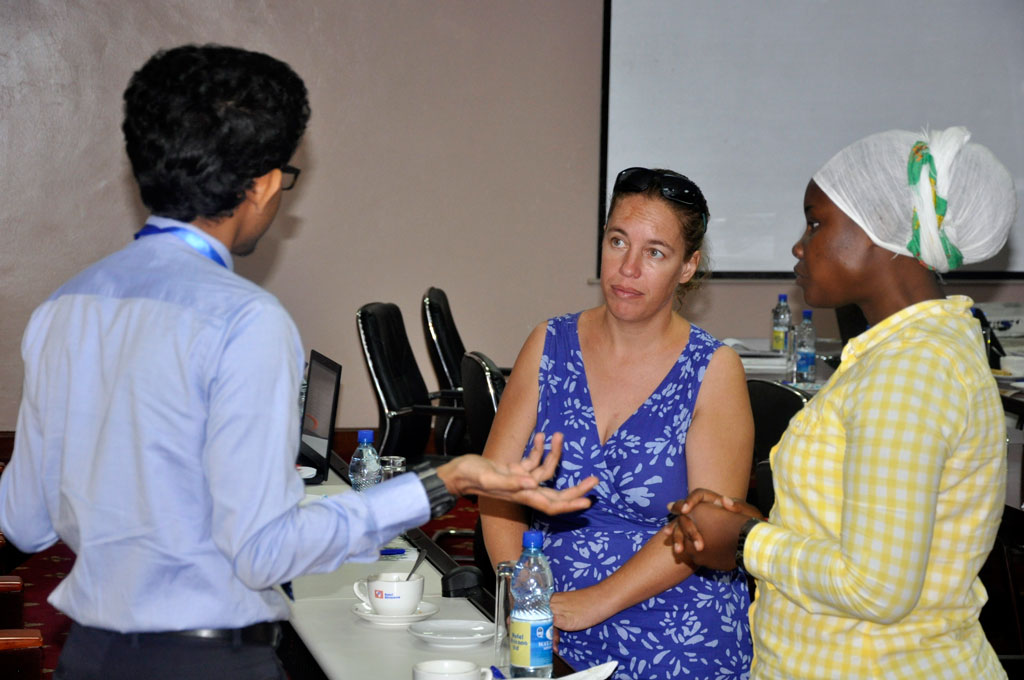
BRAC convened the meeting of development partners in Uganda, including UNDP, Adventist Development and Relief Agency (ADRA), Lutheran World Federation (LWF), War Child, Mercy Corps, Caritas and Catholic Relief Services, to share experiences from across different development sectors – food security and nutrition, WASH and health, shelter and non-food items, as part of a review exercise that will eventually feed into the overall global revision of the Sphere Handbook 2018 edition. According to the Sphere Project website, the year-long review and revision process offers opportunities for all users across the globe to engage and participate in the Handbook’s revision.
The Sphere Standards are the collective minimum set of principles that humanitarian actors agree to be guided by and harmonise the interpretation and execution of various interventions. The Standards stem from the Sphere Project - a voluntary initiative that brings a wide range of humanitarian agencies together around a common aim - to improve the quality of humanitarian assistance and the accountability of humanitarian actors to their constituents, donors and affected populations.
1-year postponement of waterbody lease demanded
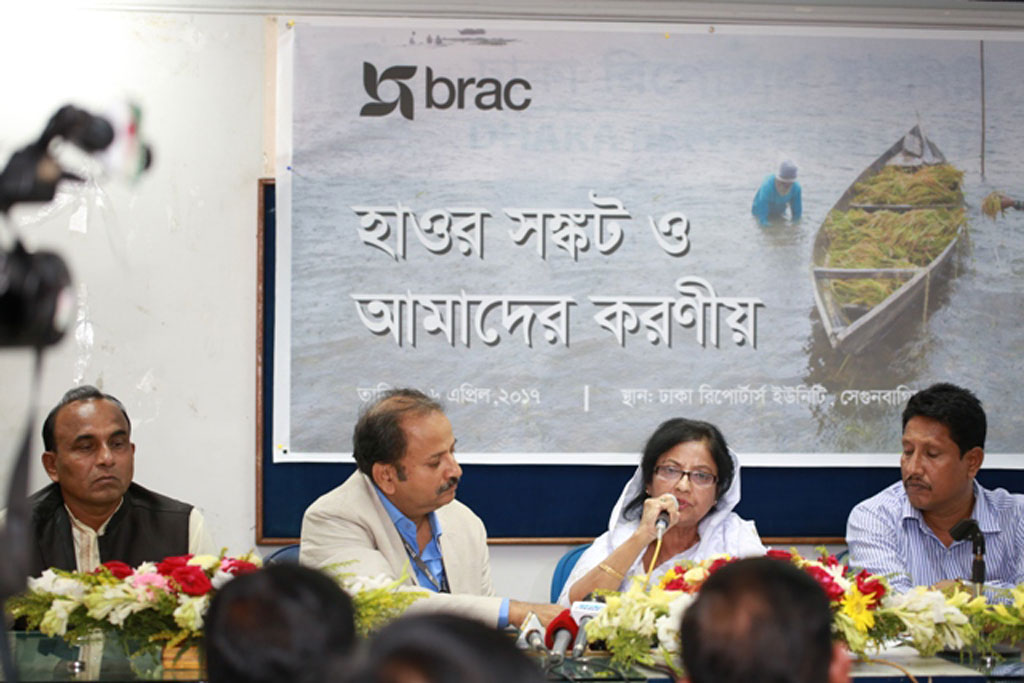
BRAC expressed today that it supports the demand of local communities for authorities to postpone the leases of haor waterbodies for one year and allow people affected by the current flooding to continue open-water fishing.
BRAC organised the press conference titled 'Haor crisis and our responsibilities' today on Wednesday (26 April 2017) at the Sagar-Runi Auditorium of Dhaka Reporter's Unity. BRAC arranged the press conference focusing on the responsibilities and plans to address the crisis on a long-term basis.
Joya Sengupta, lawmaker from the Sunamganj-2 constituency, Gawher Nayeem Wahra, director, BRAC Disaster Management and Climate Change programme, and KAM Morshed, director, Advocacy for Social Change, were present at the press conference. Representatives from the grassroots development organisations were also present at the event including, Nazmul Haque, executive director, Institute of Development Affairs (IEDA), MH Talha Chowdhury, executive director, Upama - Unnayan Parikalpanay Manush, and Muhammed Musa, executive director, Chetona Paribesh O Manob Unnayan Sangstha, Faruq Ahmed, chairman, Ashtogram union council, and Bidhan Chandra Chowdhury, chairman, Sulla union council.
Jaya Sengupta said, ‘The Ministry of Disaster Management and Relief has already started distributing relief in the haor area. We want other organisations to come forward to the aid of the affected people as BRAC is doing.’ She further warned that if the Water Development Board fails to take immediate measures to solve the waterlogging problem of the haor area such crises will return again.
Gawher Nayeem Wahra said, 'BRAC has already undertaken an emergency relief initiative for the five haor districts. Our initiative comprises distribution of fodder to 7,000 families and immediate assistance for 50 thousand families worth BDT 15 crore, but relief is not enough to solve this crisis. We need long-term planning with pragmatic solutions.'
Local public representatives expressed deep concern over the distribution of relief, saying that many people cannot collect the relief as they have not been properly informed of the time and place of distribution. They also demanded more budget allocation to ensure proper rehabilitation of those affected.
BRAC to train bus drivers to reduce road accidents
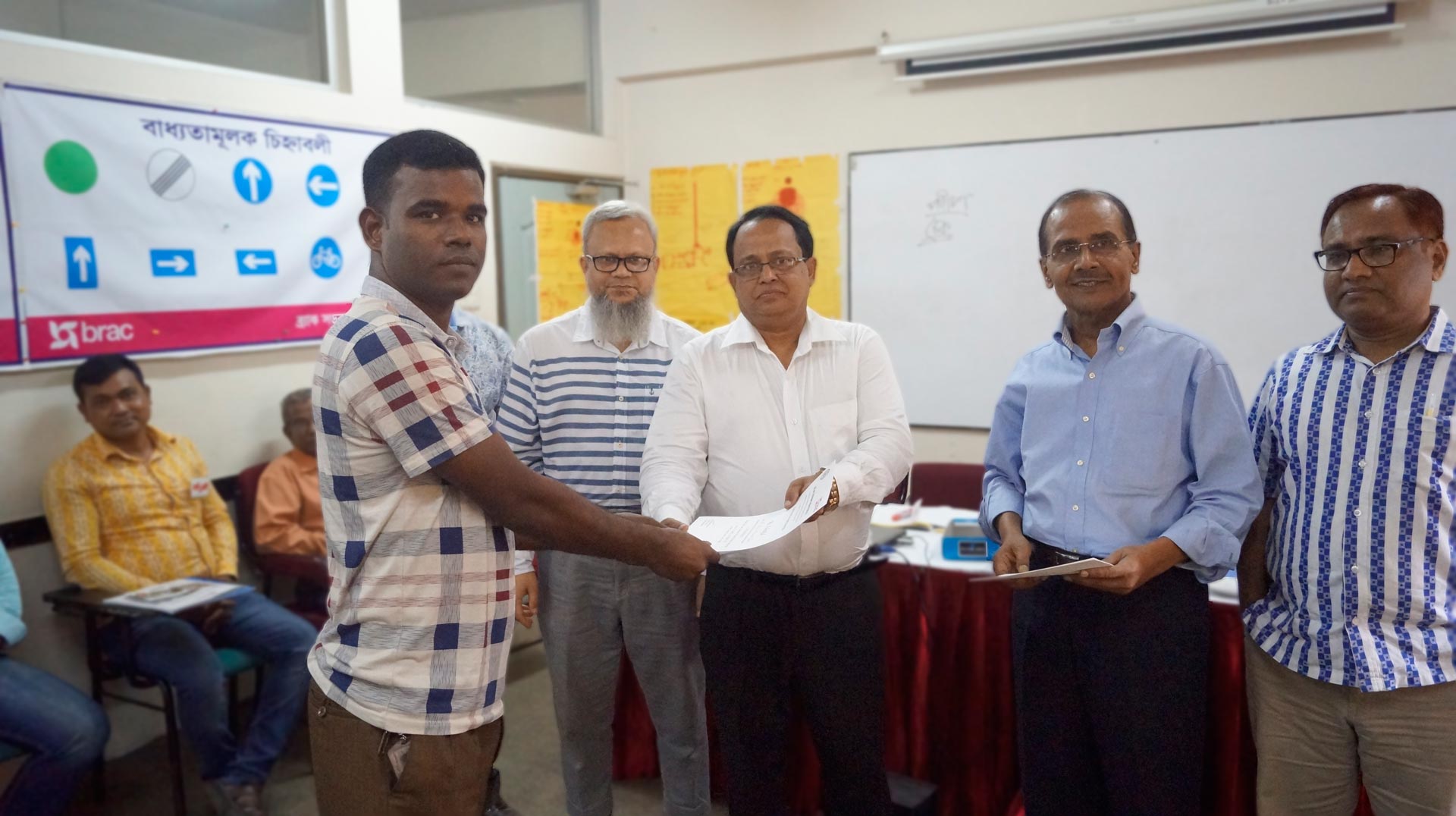
At a recent event held in BRAC Driving School (BDS) in Dhaka, speakers stressed the urgency of ensuring international standard drivers training for all professional drivers. They also stated that such training would improve the attitude and skills of the drivers resulting in safer roads for all.
Earlier in April, ENA Transport Company, which is one of the biggest bus operators in Bangladesh decided to train 200 of its drivers by BRAC Driving School. These drivers are being put through a three-day residential training called Shurakkha. This is a defensive driving training course for in-service bus and truck drivers and focuses on modifying their attitude and behaviour.
On 18 April, M Mashiur Rahman, who is both secretary of National Road Safety Council and chairman of Bangladesh Road Transport Authority visited BDS to observe this training and distributed certificates to the successful participants. In his speech he urged upon all transport companies to help the government in reducing road crash by training their drivers. "Think about your families when you drive. It will encourage you to drive safely." he said to the participants. He urged that in-service drivers should consider driving training from institutions like BDS after expressing his contentment on Shurakkha.
BRTA's director of Road Safety, Mahbub e Rabbani and director of training, M Sirajul Islam, director of BRAC's road safety programme, Najmul Hussain and the managers and trainers of BDS attended the event.
Since 2012, BRAC Driving School has been offering Shurakkha. The course was developed by BRAC with support of Hubert Ebner - an organisation specialised in drivers training.
A study by BRAC reveals that the training not only improved safe driving skills of drivers but saved 30 per cent of transport operating costs. Shurakkha is provided in two formats - a three-day residential training and the other is a two-day residential and practical road test using vehicle mounted P - Drive system that grades drivers on their attention to safety, driving, attitude and behaviour.
BDT 15 crore emergency flood relief effort launched
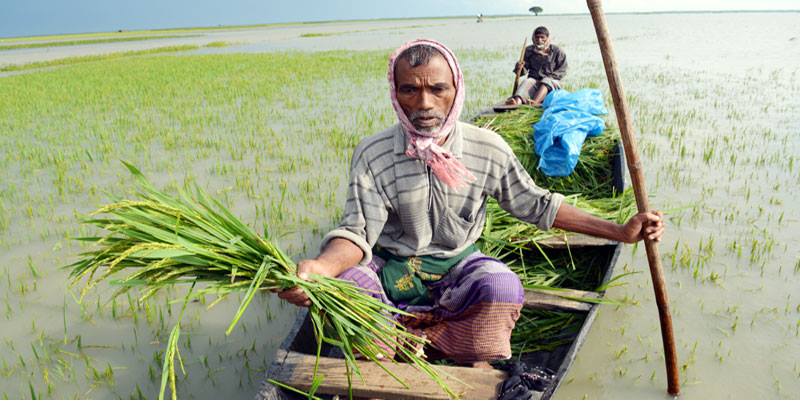
BRAC will support 50 thousand families over the next month to cope with the immediate impact of the floods on their crops and livelihoods.
The non-governmental development organisation had already begun its regular relief efforts immediately after the floods hit. With the fast deterioration of the situation and spread of floodwaters, it is undertaking added emergency relief activities. A long-term rehabilitation programme will be launched in coming months, depending on the needs of the changing situation.
The emergency relief programme will be carried out in four districts; Kishoreganj, Sunamganj, Habiganj and Netrokona, in coordination with local government authorities.
Gawher Nayeem Wahra, director of BRAC's Disaster Management and Climate Change programme said, 'The situation has rapidly deteriorated in the last 48 hours. A new crisis has also emerged as fish and ducks are also dying, in addition to the widespread flooding of crops. This effort will support families to cope with the immediate crisis’.
10 journalists get Migration Media Award
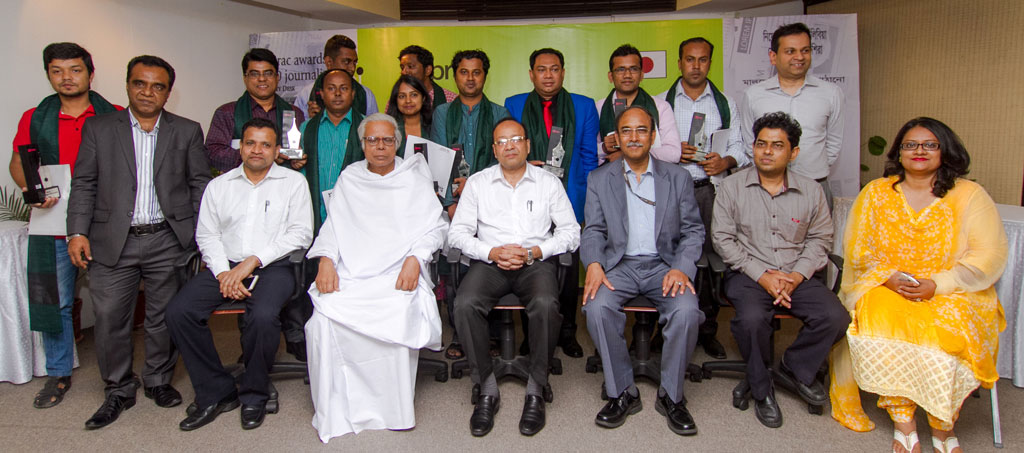
Ten media professionals received Migration Media Award 2016, an initiative of BRAC to recognise the media’s role in promoting safe migration through objective journalism. The awards were given at a ceremony organised today on Wednesday (12 April 2017) at the BRAC Centre in the Dhaka city.
The awardees are:
Print media – 1st – Belal Hossen Biplob, The Daily Star; 2nd - Adil Sakhawat, Dhaka Tribune; 3rd - Abu Jor Ansar Uddin Ahamod, The Daily Samakal.
Television report – 1st – Mashrequl Islam Rahat, Maasranga TV; 2nd – Sabina Yesmin, ATN News; 3rd – Meraj Hossen Gazi, Bangla Vision.
Television programme – 1st – Hassan Ahamed Chowdhury Kiron, for programme telecast on ATN Bangla.
Radio – 1st – Md Mustafizur Rahman, Bangladesh Betar.
Online – 1st – Md Shariful Islam Hasan, Daily Prothom Alo.
Local journalism – 1st – Faruque Ahmad, Trishal upazila correspondent, The Daily Ittefaq.
Additional secretary to the Ministry of Expatriates’ Welfare and Overseas Employment Jabed Ahmed attended the event as the chief guest with BRAC executive director Dr Muhammad Musa in chair. Noted writer and researcher Syed Abul Muksud was present as the special guest. The jury board members Syed Ishtiaque Reza, director news, 71 TV, Robaet Ferdous, associate professor, Department of Mass Communication and Journalism, Dhaka University, KM Ali Reza, deputy chief, Ministry of Expatriates’ Welfare and Overseas Employment, and Jasiya Khatoon, director, WARBE-DF, were also present. BRAC Senior director for strategy, communication and empowerment Asif Saleh moderated the event.
Additional secretary Jabed Ahmed said, ‘The government wants everyone who seeks to work abroad has skill training before migrating. But it is not easy, it is a challenging task.’
Writer and researcher Syed Abul Muksud said, ‘We should not blame the government for all that are going wrong with the migrant workers. To solve the issues the government along with individuals, civil society, recruiting agencies, NGOs and representatives from the international NGOs needs to work hand in hand.’
BRAC ED Dr Muhammad Musa called on the media professionals to focus in their work all the sides of the migrant workers’ life right from the pre-departure situations to their effort to reintegrate into the society after coming back home. Hassan Imam, programme head, BRAC Migration Programme, in his keynote paper also said the media can play an even more effective role by giving coverage to the issues migrant workers or those aspiring to go abroad face at all the phases including the realities they deal with after they return.
Sir Fazle in Tanzania
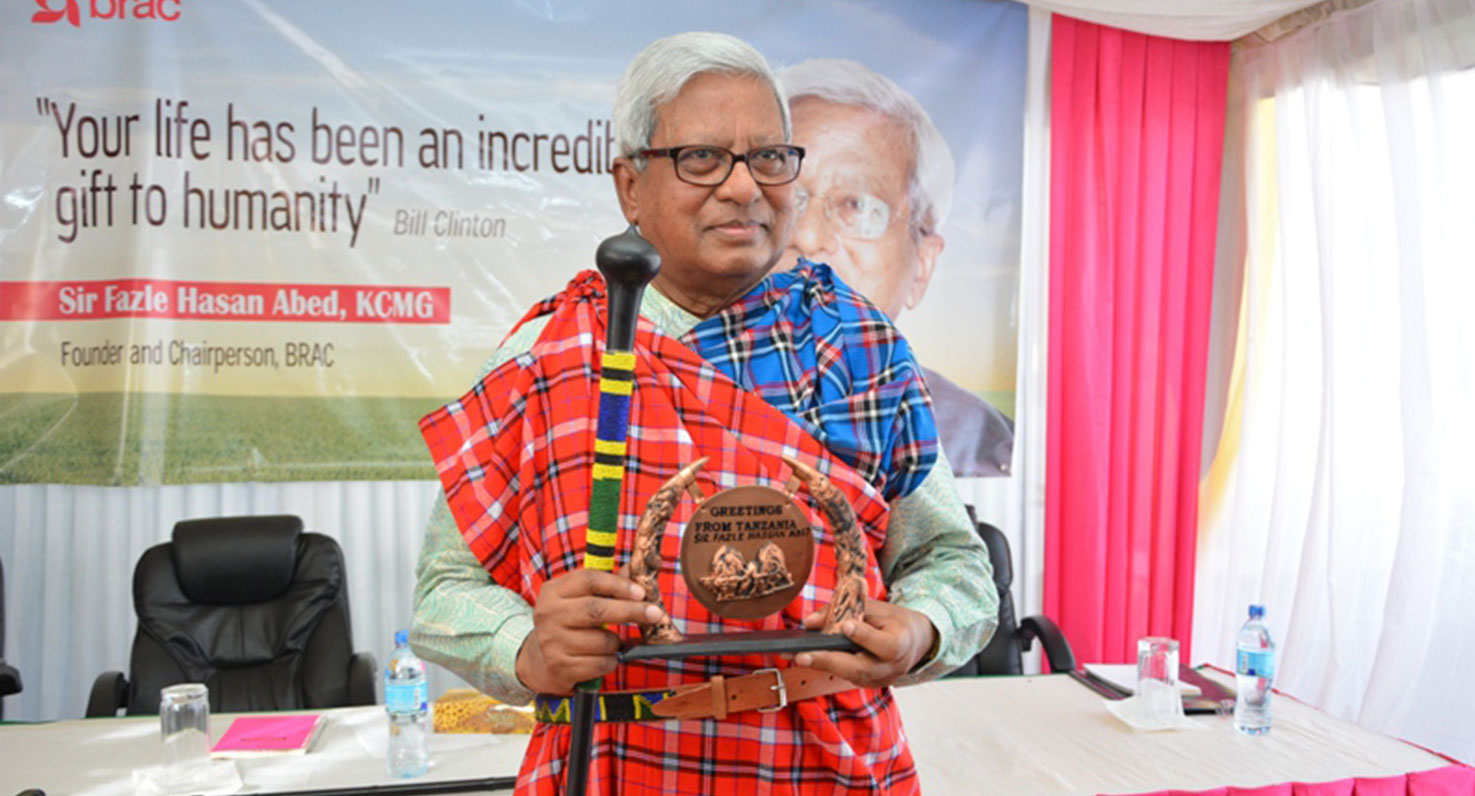
Sir Abed holding his gift after he was named Respected Elder of Tanzania by BRAC in Tanzania Staff
It was a special day for BRAC Tanzania, as the long awaited arrival of Sir Fazle Hasan Abed finally took place on 4 March 2017. His last visit was four years ago and since then a lot has changed with the addition of many new faces, most of who has only read stories of the great leader.
On his visit, Sir Fazle met with senior staff as well as the board members to discuss BRAC's role in Tanzania and the way forward. He had meetings with various potential partners, including representatives from UNICEF, and the Ambassadors of Canada, the Netherlands and Ireland.
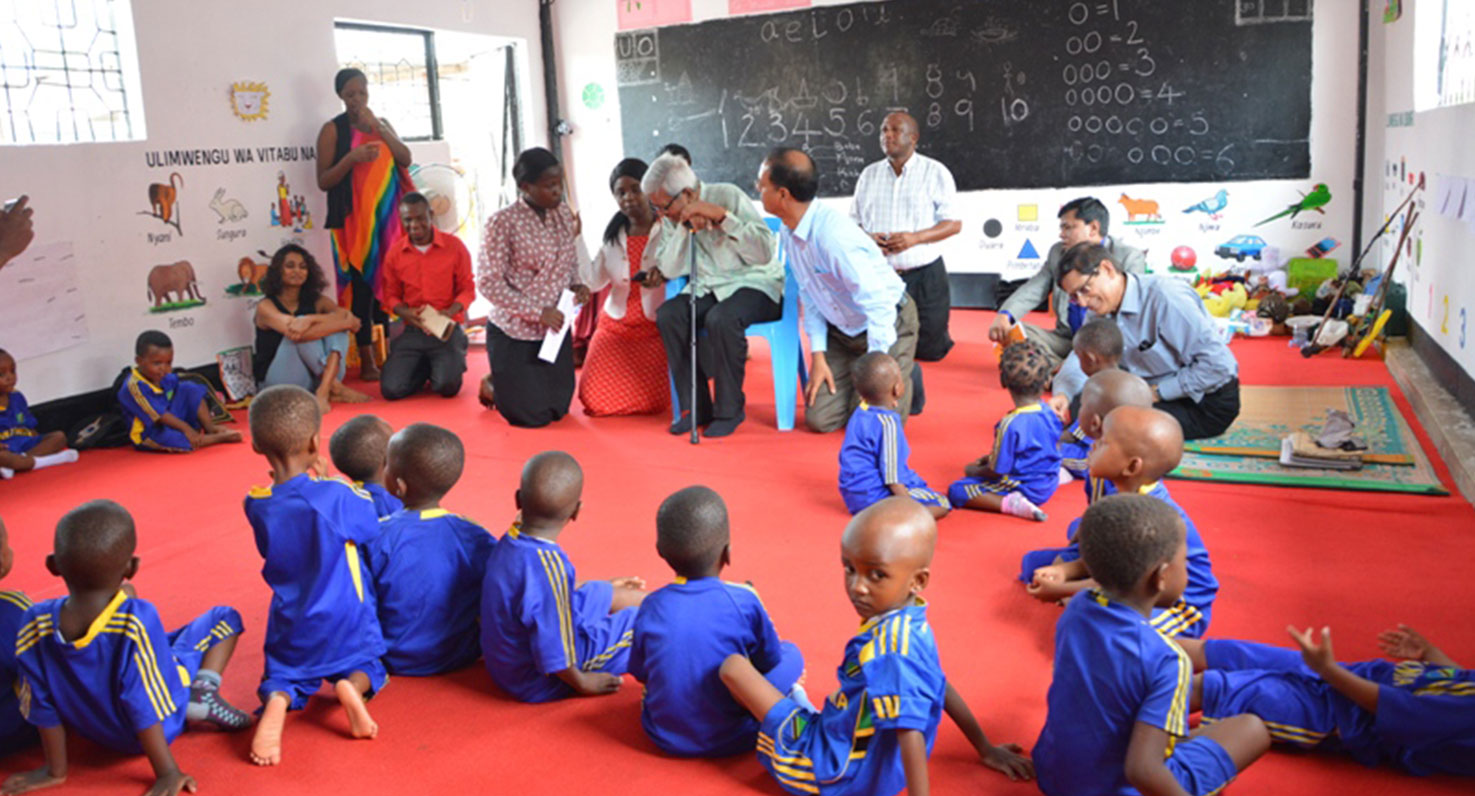
Sir Abed getting briefing from Education team when he visited Play Lab project at Temekem, Dar es salaam
Sir Fazle visited different parts of Tanzania to visit our programmes. He visited the DFID funded Girls' Education Challenge in the Mwanza region. He met with teachers from public schools and students from our in-school mentoring sessions, and visited a newly established library, courtesy of BRAC. He met with LEAD producer groups and microfinance women’s groups. The chairperson was happy to see BRAC’s impact in these communities. In Dar es Salaam, Sir Fazle was taken to visit the Play Lab Project, our latest early childhood development project.
On the final day of the visit, Sir Fazle was honoured with a surprise declaration of a Respected Elder of Tanzania. Sir Fazle was dressed in the traditional maasai outfit, a sign of acceptance in Tanzania’s elderly community.
Join the world’s biggest family

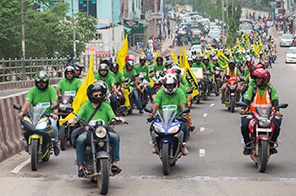 On 13 May, bus drivers and transport association leaders at the Mohakhali bus terminal took pledges to keep the speed of their vehicles below 30 kilometre per hour while passing schools, hospitals, residential areas and on roads with mixed traffic of non-motorised vehicles and pedestrians. A total of 5000 bus drivers, transport association leaders, operators and administrators are expected to take part in this week-long activity.
On 13 May, bus drivers and transport association leaders at the Mohakhali bus terminal took pledges to keep the speed of their vehicles below 30 kilometre per hour while passing schools, hospitals, residential areas and on roads with mixed traffic of non-motorised vehicles and pedestrians. A total of 5000 bus drivers, transport association leaders, operators and administrators are expected to take part in this week-long activity.